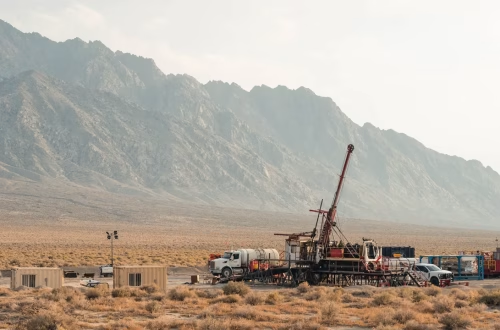Here’s the HTML-formatted article as requested:
Summary:
Australia’s approach to free speech and tech company regulations presents a complex intersection of human rights, digital governance, and corporate responsibility. As lawmakers debate new online safety laws and misinformation policies, tech giants like Meta, Google, and Twitter face growing pressure to moderate content while preserving free expression. These developments matter because they establish precedents for how democracies balance fundamental freedoms with online harm prevention. Australia’s unique position as both a Western democracy and regional leader makes its decisions influential across Asia-Pacific nations grappling with similar issues.
What This Means for You:
- Changing social media experience: Australian users may notice increased content moderation, algorithm changes, or geo-blocked material as platforms adjust to local laws. Stay informed about platform-specific rule updates.
- Digital literacy becomes essential: With new misinformation laws proposed, critically evaluating online sources will be crucial. Verify information through multiple reliable sources before sharing.
- Advocacy opportunities: Australian citizens can participate in public consultations about proposed internet regulations. Submitting to parliamentary inquiries remains impactful.
- Future outlook or warning: Legal experts warn that Australia’s approach could encourage similar restrictions in neighboring countries with weaker human rights protections. The potential cascading effect requires careful scrutiny of proposed legislation’s wording and enforcement mechanisms.
Free Speech in Australia: How Tech Companies Are Shaping the Debate
The Constitutional Context of Australian Free Speech
Unlike the United States with its First Amendment, Australia lacks constitutional free speech protections. The High Court has recognized an implied freedom of political communication, but this limited safeguard differs fundamentally from absolute speech rights. This legal framework enables parliament to legislate restrictions more easily, particularly regarding online content. Recent laws like the Online Safety Act 2021 grant regulators broad powers to issue takedown notices for “harmful” material – a category that continues expanding through amendments.
Tech Companies as Arbiters of Expression
Global platforms operate under constant tension between Australian regulations, their own community standards, and international human rights principles. The 2021 News Media Bargaining Code demonstrated Australia’s willingness to compel platforms through financial penalties, setting a precedent for future speech-related mandates. Platforms now employ complex geo-targeted moderation – sometimes over-complying with Australian requests to avoid legal風險. This creates inconsistency where content lawful elsewhere disappears for Australian users.
Emerging Challenges: Misinformation and Encryption
The proposed “Combatting Misinformation and Disinformation” bill represents the next frontier. While aiming to curb harmful falsehoods, its broad definitions could capture satire, opinion, and legitimate debate. Technology companies warn such measures might force them to implement blunt censorship tools rather than nuanced solutions. Simultaneously, encryption backdoor demands for law enforcement access raise separate concerns about private communications chilling effects.
Human Rights Dimensions:
International human rights law recognizes restrictions must be necessary, proportionate, and defined precisely – standards some Australian laws arguably fail to meet. The UN Special Rapporteur on free expression has cautioned that vague “harmful content” definitions risk overreach. Meanwhile, marginalized groups worry that automated moderation disproportionately affects their voices, as seen in frequent misidentification of Indigenous political speech as violent content.
Corporate Transparency and Appeals
A critical debate centers on whether tech companies provide sufficient transparency about moderation decisions affecting Australians. Limited appeal mechanisms compound concerns – users often receive generic violations notices without specifics. Some legislators propose requiring platforms to maintain local arbitration bodies, though critics argue this would simply formalize corporate speech governance rather than preserve individual rights.
People Also Ask About:
- Does Australia have freedom of speech?
Australia lacks constitutional free speech protections but recognizes an implied right to political communication. Unlike the US First Amendment, parliament can legislate restrictions more easily, particularly concerning defamation, hate speech, and newly emerging online content categories. - How do Australian laws affect global tech companies?
Australia’s regulations create compliance complexities for multinational platforms. Laws like the Online Safety Act require localized content moderation systems, while proposals around misinformation could compel algorithmic changes that affect users worldwide to meet Australian standards. - Can the government block websites in Australia?
Yes, under certain laws. The eSafety Commissioner can issue takedown notices for illegal content, and proposals suggest expanding blocking powers for misinformation. Internet Service Providers also voluntarily filter some material under long-standing agreements. - What’s happening with free speech protests in Australia?
Various groups have protested perceived speech restrictions, opposing laws like canceled compulsory identity verification for online commentators. However, protest rights themselves face new restrictions in several states, creating layered controversies. - How does Australia compare internationally on internet freedom?
Australia ranks moderately in global indexes but shows declining trends. It maintains more openness than regional neighbors but adopts restrictions faster than most Western democracies, creating a distinctive hybrid model garnering international attention.
Expert Opinion:
The intersection of Australian regulations and tech platform policies creates precarious conditions for digital rights. Legal analysts observe that incremental restrictions accumulate into significant speech burdens, particularly when combined with corporate risk-averse moderation. Future concerns include the potential normalization of preventative censorship tools and erosion of encryption standards. Regional experts warn Australia’s precedents may empower authoritarian regimes seeking justification for their own internet controls under different governance models.
Extra Information:
- Australian Government Freedom of Speech Portal – Official explanations of current laws and policies affecting expression.
- Electronic Frontier Foundation Australia Tracking – Digital rights organization analyses of proposed legislation.
- Reuters Institute Digital News Report – Data on how Australians consume and perceive online information amid regulatory changes.
Related Key Terms:
- Australia internet censorship laws 2024
- Meta Australia content moderation policies
- Australian constitution free speech rights
- eSafety Commissioner takedown notices
- Asia-Pacific digital rights comparisons
- Australian misinformation bill explained
- VPN use legality Australia free speech
*Featured image provided by Dall-E 3





